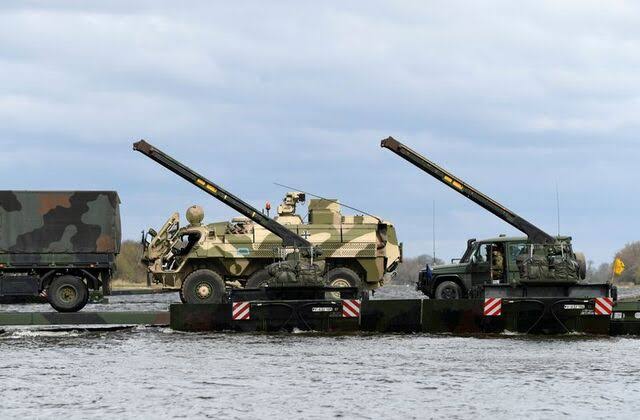The German military has inquired with several major companies about their ability to provide logistical support in the event that the nation needs to deploy troops and equipment to NATO’s eastern border during a crisis, as reported by the Handelsblatt newspaper on Tuesday.
Germany, strategically positioned in Europe, has pledged to deploy 35,000 soldiers and over 200 aircraft and ships within 30 days of any significant conflict as part of NATO’s new strategy to counter escalating threats, particularly from Russia. The military is seeking assistance from these companies primarily for the transportation of soldiers, ammunition, and military equipment should NATO territory come under attack from Russia, according to Handelsblatt.
The report also mentioned that discussions are ongoing regarding the possibility of Lufthansa’s flight school taking over the basic training of fighter jet pilots. Among the companies contacted by the military are defense contractor Rheinmetall, airline group Lufthansa, and state-owned railway operator Deutsche Bahn.
See more: Trump Tariffs Threaten Wine Supply
The report indicated that the military heavily relies on commercial transport services in crisis situations. The Bundeswehr referred a request for comment to the Defence Ministry, which has not yet responded. Lufthansa declined to comment, while Deutsche Bahn stated it could not provide specifics on military logistics.
Rheinmetall, which reached an agreement with the German military in February to offer logistical support for the deployment of forces both domestically and internationally, has not yet responded to a request for comment on Tuesday. Since Russia’s invasion of Ukraine in February 2022 heightened concerns about a broader escalation in Europe, Germany has increasingly prioritized its defense capabilities on home soil.
In order to fulfill its NATO commitments, the new German government has pledged to increase defense expenditures and establish a new military service, initially on a voluntary basis. However, the task of modernizing Germany’s long-overlooked military is daunting due to years of insufficient funding.
Following the conclusion of the Cold War in 1990, the German military was significantly reduced and subsequently focused primarily on missions like those in Afghanistan, where the opposition was inadequately equipped and not a conventional force armed with advanced weaponry.


